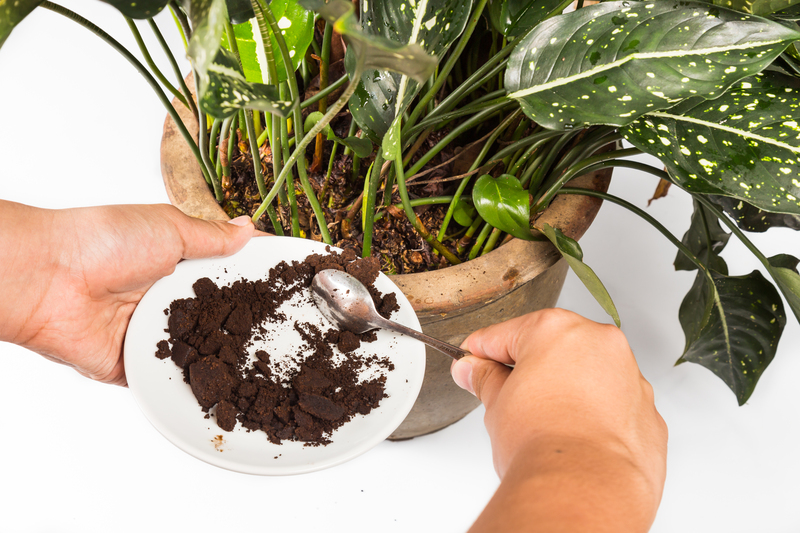Unleash Your Garden's Potential with 3 Weed Control Tips
Posted on 17/06/2025
Unleash Your Garden's Potential with 3 Weed Control Tips
Every dedicated gardener dreams of a thriving, lush, and vibrant landscape. Yet, one challenge constantly threatens this vision: weeds. These stubborn intruders not only rob your beloved plants of resources but can also hamper your garden's beauty and yield. Whether you're a seasoned horticulturist or a green-thumbed beginner, effective weed control is essential to unleash your garden's full potential. In this comprehensive guide, we will explore three actionable and powerful weed management strategies that will help you reclaim your garden, promote healthy growth, and maintain aesthetic appeal throughout the seasons.
Why Weed Control Matters for Your Garden's Success
Before we dive into our top tips, let's first discuss why controlling weeds is essential, not just for appearances, but for a flourishing ecosystem. Weeds are more than unsightly nuisances--they aggressively compete for water, nutrients, and sunlight, directly impacting the health of your prized plants.
- Nutrient Competition: Weeds often have stronger and faster-growing root systems than cultivated plants.
- Water Deprivation: Rapidly spreading weeds can soak up precious moisture before your flowers and vegetables get a chance.
- Disease and Pest Havens: Unchecked weed growth harbors insects and plant diseases that may spread to your crops or ornamentals.
- Reduced Yield & Display: For fruit, vegetable, or flower gardens, excessive weeds can drastically reduce yields and curb visual appeal.
It's clear that weed control--whether through manual, physical, or preventive methods--is the first step towards a thriving garden.

The 3 Essential Tips for Effective Weed Control
1. Proactive Mulching: A Gardener's Best Defense
One of the most effective weed management tips is to cover your soil with an organic or inorganic mulch layer. Mulching is about more than just weed prevention--it's also a key to soil health and moisture retention.
- Suppresses Weed Growth: Mulch blocks sunlight, preventing weed seeds from germinating or breaking through the soil.
- Retains Soil Moisture: A good layer of mulch locks in essential moisture, reducing the need for frequent watering.
- Adds Nutrients: Organic mulches (like straw, bark, compost, or shredded leaves) break down over time, enriching your soil naturally.
How to Apply Mulch for Optimal Weed Prevention:
- Clear the area of existing weeds first--use a hoe or your hands to uproot them completely.
- Lay down a thick mulch layer (at least 2-4 inches) around your plants, being careful not to smother stems or trunks.
- For stubborn perennial weeds, consider placing landscape fabric or newspaper beneath the mulch for extra protection.
- Replenish your mulch seasonally as it decomposes or gets scattered.
Tip: Organic mulches are best for most gardens because they eventually improve soil quality. Wood chips, straw, shredded bark, compost, or even grass clippings can make excellent weed barriers.
2. Consistent Hand Weeding & Cultivation
As tedious as it may sound, hand weeding remains a foolproof method, especially for targeted weed removal. Early action is crucial--young weeds are easy to pull and less likely to spread seeds across your garden. Regular garden maintenance keeps weed infestations from spiraling out of control.
- Tools You Might Need:
- Garden hoe
- Hand trowel
- Weeding fork
- Gloves for protection
Best Practices for Effective Manual Weed Control:
- Weed when soil is damp: Moist earth loosens roots, making it easier to remove the entire weed, roots and all.
- Target weeds before they seed: Pull weeds before flowering or seeding to prevent further spread.
- Dispose wisely: Especially for weedy invaders with seeds, collect and remove them from your garden to avoid reinfestation.
- Loosen soil: Use a hoe or cultivator to disturb the top few inches of soil. This uproots weed seedlings and aerates your garden bed at the same time.
Consider This: A short weekly session in your garden pulling weeds by hand or cultivating the soil can be more impactful than waiting for the weed issue to escalate. Consistency is key for long-term, low-maintenance gardens.
3. Strategic Planting & Ground Covers
A healthy, densely planted garden is the best natural weed deterrent. By filling gaps--and choosing aggressive ground covers or closely spaced crops--you can minimize available space for weeds to establish.
- Shade Out Intruders: Dense foliage from well-chosen ground covers or vegetables can literally block sunlight from reaching emerging weeds.
- Outcompete Weeds: Fast-growing or thickly planted varieties control weeds by outcompeting them for resources.
- Low Maintenance: Once established, ground covers like creeping thyme, sedum, or clover require little upkeep and continually suppress weeds.
How to Use Plant Spacing for Weed Suppression:
- Follow recommended spacing on seed packets for vegetables and annuals, but consider interplanting or tighter spacing for fast-growing crops like lettuce, spinach, or radishes.
- Choose perennial ground covers that suit your garden's light and soil conditions; they'll fill spaces quickly and minimize weed emergence.
- Use companion planting: Let vining beans climb up corn stalks or plant squash to shade soil beneath taller tomatoes.
Expert Tip: For multi-layer suppression, combine mulching and dense planting--this double barrier makes it extremely difficult for any weed to thrive!
Bonus Weed Control Strategies for a Healthier Garden
While these three primary weed control tips form the backbone of a healthy garden, integrating a few bonus strategies will further safeguard your planting beds and transform your landscape.
Solarization for Weed Seed Elimination
If your garden is overwhelmed by weeds, especially annual and perennial seeds lurking in the soil, consider solarization before planting. This technique uses the sun's power for a "fresh start."
- How It Works: Cover bare soil with clear plastic sheets in peak summer. The heat kills weed seeds, insects, and even some pathogens.
- Duration: Leave the plastic in place for 4-6 weeks (or until weeds are visibly dead and soil temperature reaches 125?F-140?F).
Garden Edging and Barriers
Physical garden edging and borders--using metal, plastic, stones, or bricks--deter grass and invasive weeds from creeping into beds from lawns or wild areas. These edges not only provide a neat look but offer lasting protection.
Smart Watering Practices
Water only your desired plants by using soaker hoses or drip irrigation.
- This reduces water available for weed seeds lying between plant rows or out of reach of irrigation lines.
- Grass and broadleaf weeds need moisture to germinate; by targeting water, you starve emerging weeds before they start!

Frequently Asked Questions About Weed Control
Q1: What is the best time for weed removal?
A: The best time is immediately after rain or watering, when soil is soft, making it easier to extract the entire weed, including its roots.
Q2: Should I use chemical herbicides for weed management?
A: For most home gardens, focus on organic and mechanical approaches first. Herbicides may be necessary for invasive species, but always follow product directions and consider environmental impact. Many weed killers also affect desirable plants and pollinators.
Q3: Can weeds be composted?
A: Young, seedless weeds can be composted. However, avoid adding mature weeds with seeds or aggressive roots (like bindweed or Bermuda grass) to your compost pile, as they can survive and spread when the compost is used.
Q4: How often should I reapply mulch for weed control?
A: Organic mulches should be refreshed every season, or whenever they decompose to less than 2 inches thick. Regularly check for "bald spots" where weeds might emerge.
Conclusion: Take Control and Let Your Garden Flourish!
By adopting these 3 weed control strategies--proactive mulching, diligent hand weeding, and strategic planting--you are empowering your garden to reach its full potential. Consistent weed management not only keeps your landscape looking pristine but also ensures your plants grow stronger, healthier, and more prolific.
Combining these best practices with additional measures like garden edging, targeted watering, or even soil solarization will help you maintain a weed-free paradise season after season. Don't let weeds overpower your gardens! Embrace prevention, quick action, and smart planting to unleash your garden's beauty and productivity. Happy gardening!
Latest Posts
All you need to know about container gardening
Keeping Your Garden Alive: Winter Plant Care Essentials
Low-Expense Garden Upkeep Ideas for Busy Homeowners
Designing a Zen Garden for Ultimate Outdoor Relaxation
Boost your privacy quickly with these fast-growing hedge choices



